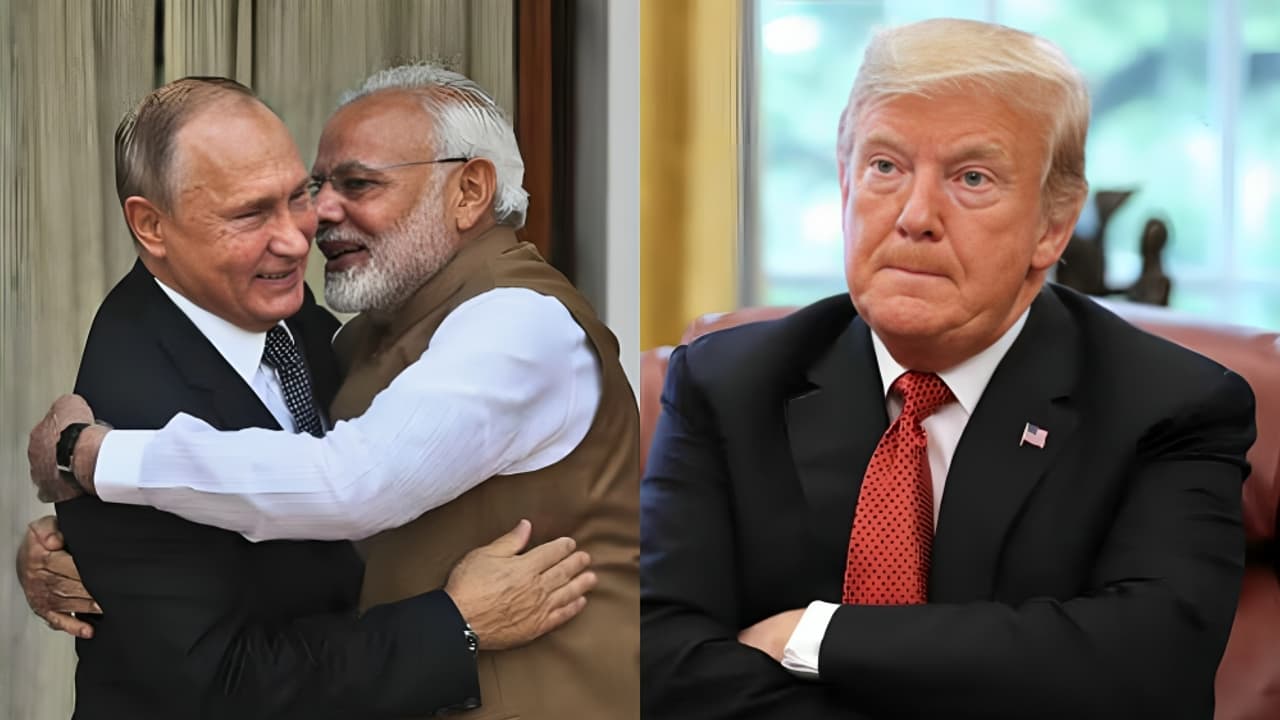NATO Secretary-General Mark Rutte has claimed that US tariffs on India over its purchase of Russian oil are having a ‘big impact’ on Moscow, and that Prime Minister Modi is now ‘on the phone’ with Putin, asking him to explain his Ukraine strategy.
In a startling claim on the sidelines of the UN General Assembly, NATO Secretary-General Mark Rutte reportedly said that US President Donald Trump’s recent tariffs on India, meant to penalise India for buying Russian oil, are already reverberating in Moscow. He asserted that India is now reaching out to Russia, with Prime Minister Narendra Modi purportedly asking President Vladimir Putin to clarify his Ukraine war plans.
Speaking to CNN, Rutte said He phrased it plainly:
“Delhi is on the phone with Vladimir Putin … Narendra Modi is asking him, ‘I support you, but could you explain me your strategy because I have now been hit by these 50% tariffs by the United States.”
Rutte argued that the tariffs ‘immediately impact Russia’ because India, having been hit by those tariffs, would naturally seek political explanations and confidence from Moscow.
So far, no confirmation or denial has come from either New Delhi or Moscow in response to his assertions.
What the tariffs are and why they were imposed
Last month, US President Trump imposed a 25 percent reciprocal tariff on Indian goods, followed by an additional 25 percent penalty targeting India’s import of Russian oil. In effect, this means some Indian goods could face up to 50 percent tariffs entering the US market.
The Trump administration’s stated rationale is that India’s purchase of Russian energy indirectly supports Moscow’s war effort in Ukraine, an argument that US officials have made publicly.
India, on its part, has defended its energy deals as necessary for securing affordable oil for a population of 1.4 billion amid global supply shocks. It has argued that unlike some Western states, it faces a more limited set of options to meet its energy demand.
The logic behind Rutte’s claim and its challenges
Rutte’s narrative hinges on a cascade:
Tariffs hit India’s trade interests The higher costs on U.S.-bound Indian goods and the penalty on its oil imports generate economic pressure on New Delhi.
India turns for clarity or assurance Faced with this pressure, India supposedly seeks direct explanations from Russia, especially on a matter like Ukraine, to reconcile its energy policy with global political risks.
Russia feels the immediate ripple The chain reaction, Rutte argues, transmits pressure back to Moscow, making it harder for Russia to act without explaining itself to a crucial partner.
But there are some caveats:
The claim that PM Modi has actually made such a call or asked Putin this question is unverified. Rutte offers no on-record confirmation from Indian or Russian officials.
Even if such a call were made, attributing it entirely to U.S. tariffs might oversimplify the strategic and diplomatic ties India has with Russia.
India often pursues a balancing foreign policy; it may seek dialogue with all sides without the implication that one move is entirely reactive to another.
Given the lack of public confirmation or denial, the claim remains more of a strategic narrative than an established fact.
What Modi and Putin discussions show so far
Modi and Putin have spoken multiple times in recent weeks. On September 17, Putin called Modi to mark the latter’s birthday, during which Modi affirmed India’s ‘full support for peaceful resolution’ of the Ukraine conflict. Earlier, on September 1, the two leaders met during the SCO Summit in Tianjin, China. According to reports, they even travelled together in the same car from the summit venue to their bilateral meeting site.
Still, those conversations were framed in diplomatic and strategic rather than overtly pressure-driven terms.
Pushback, criticism and what remains to be seen
Some observers are likely to see Rutte’s remarks as part of a broader geopolitical narrative pushing India to align more strictly with Western positions on Russia. The claim also invites scrutiny:
- India’s diplomatic style typically avoids escalatory rhetoric or confirmation of private calls.
- Russia may view such statements as attempts to sow doubt or influence bilateral ties.
